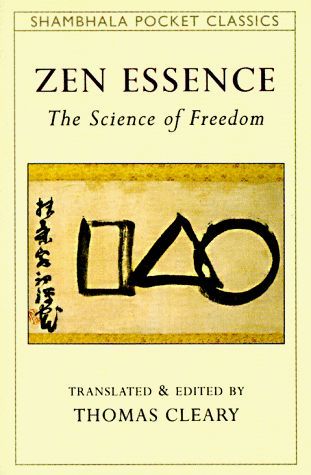
Zen Essence The Science of Freedom
The teachings presented here offer a new view of Zen Buddhism that may surprise some readers. In contrast to the popular image of Zen as being an authoritarian, monastic tradition deeply rooted in Asian culture, this collection of teachings portrays Zen as being remarkably flexible, adaptive to contemporary and individual needs, and transcending cultural boundaries. Because of the very nature of Zen, its essence does not belong to any particular culture or philosophy. Its practice requires consciousness alone and does not depend on a background in Zen Buddhism or Asian culture. The essence of Zen applies directly to the relationship between mind and culture, whatever that culture might be. Therefore it relates immediately to the way in which the world is experienced and life is lived. Drawn from the records of the great Chinese Zen masters of the Tang and Song dynasties, this collection represents the most open and direct forms of instruction in the entire Zen canon. What emerges is a picture of Zen, not as a religion or philosophy, but as a practical science of freedom. The translator provides a detailed afterword describing the historical and cultural background of the development of Chinese Zen.